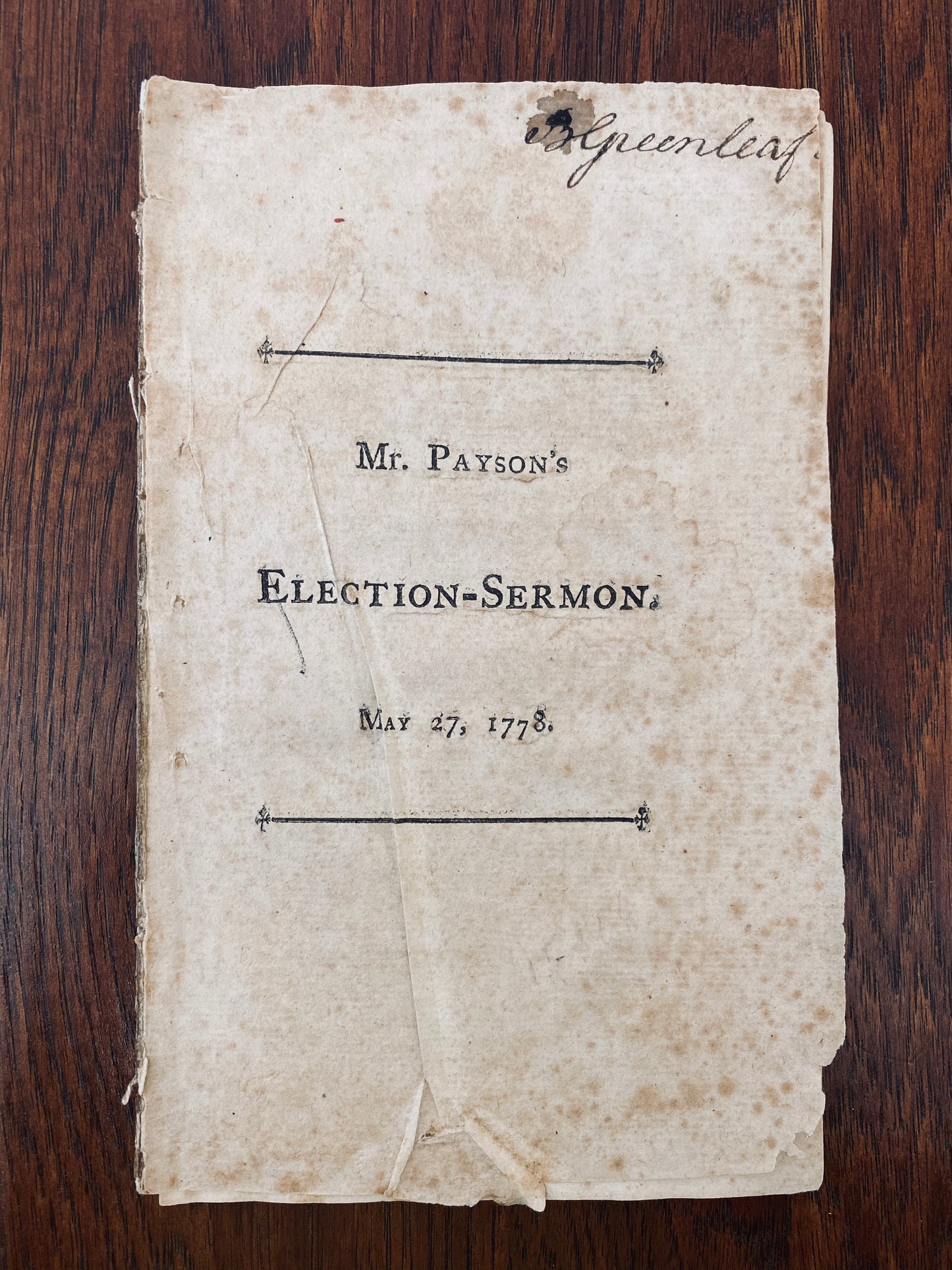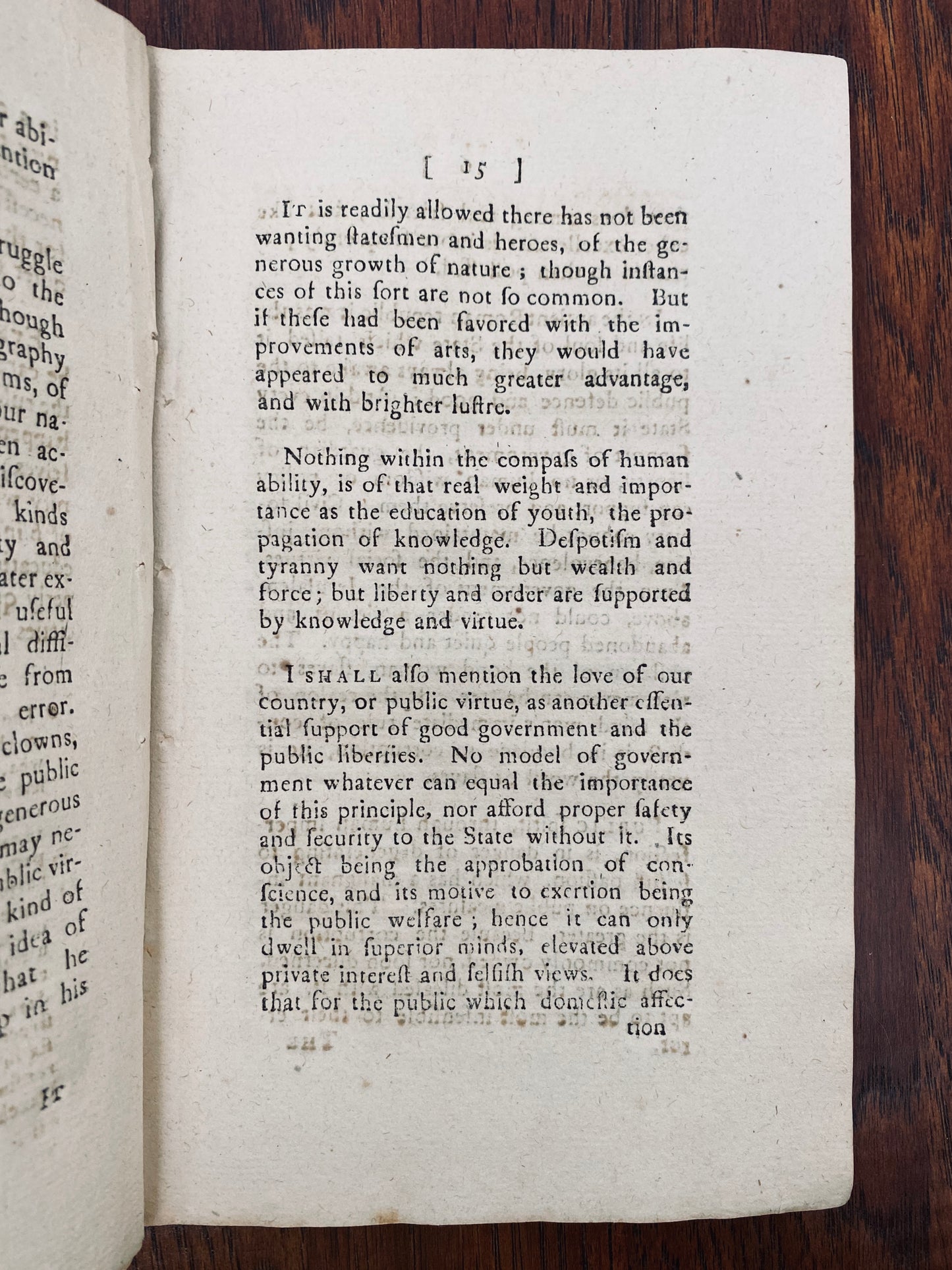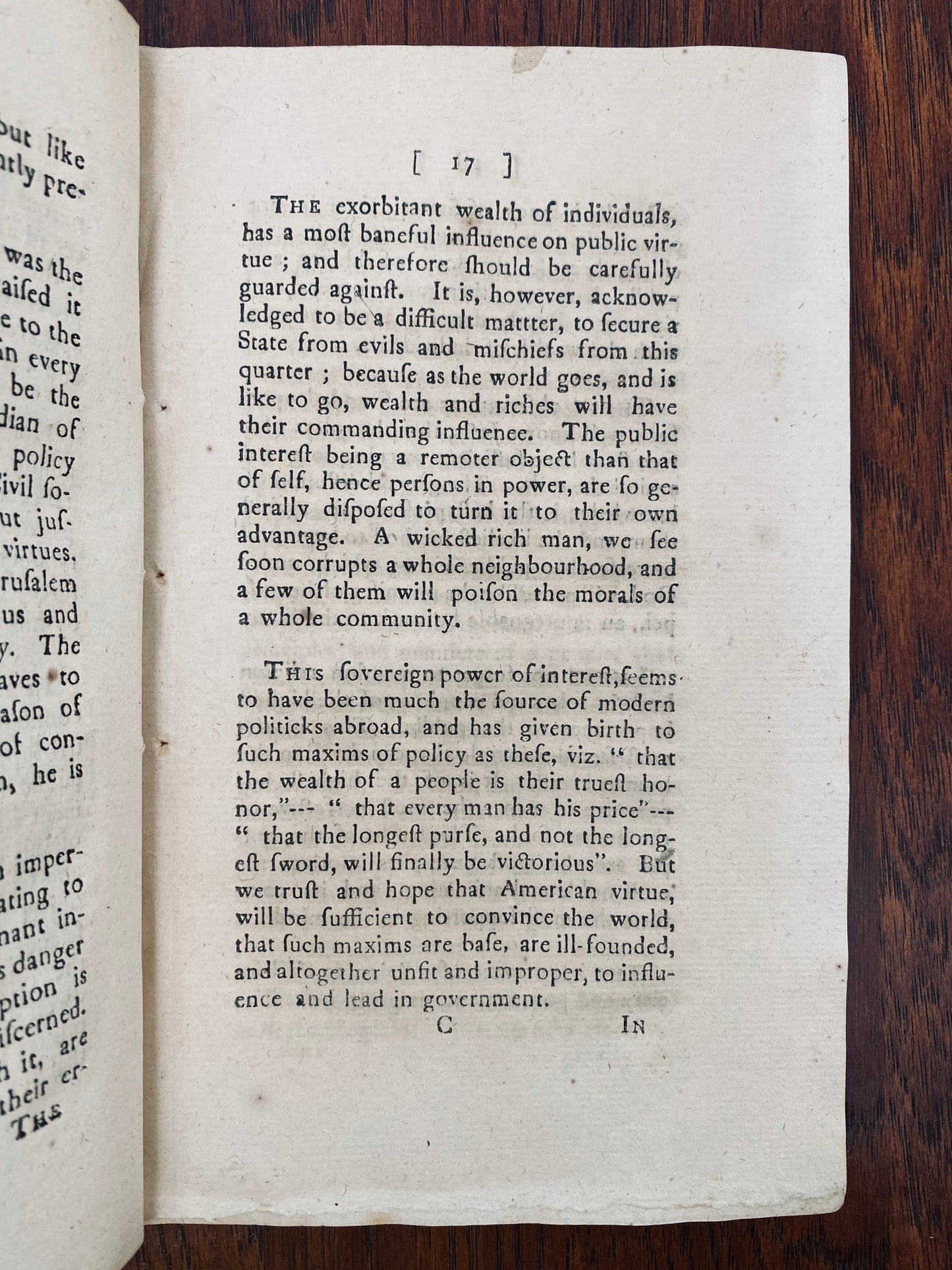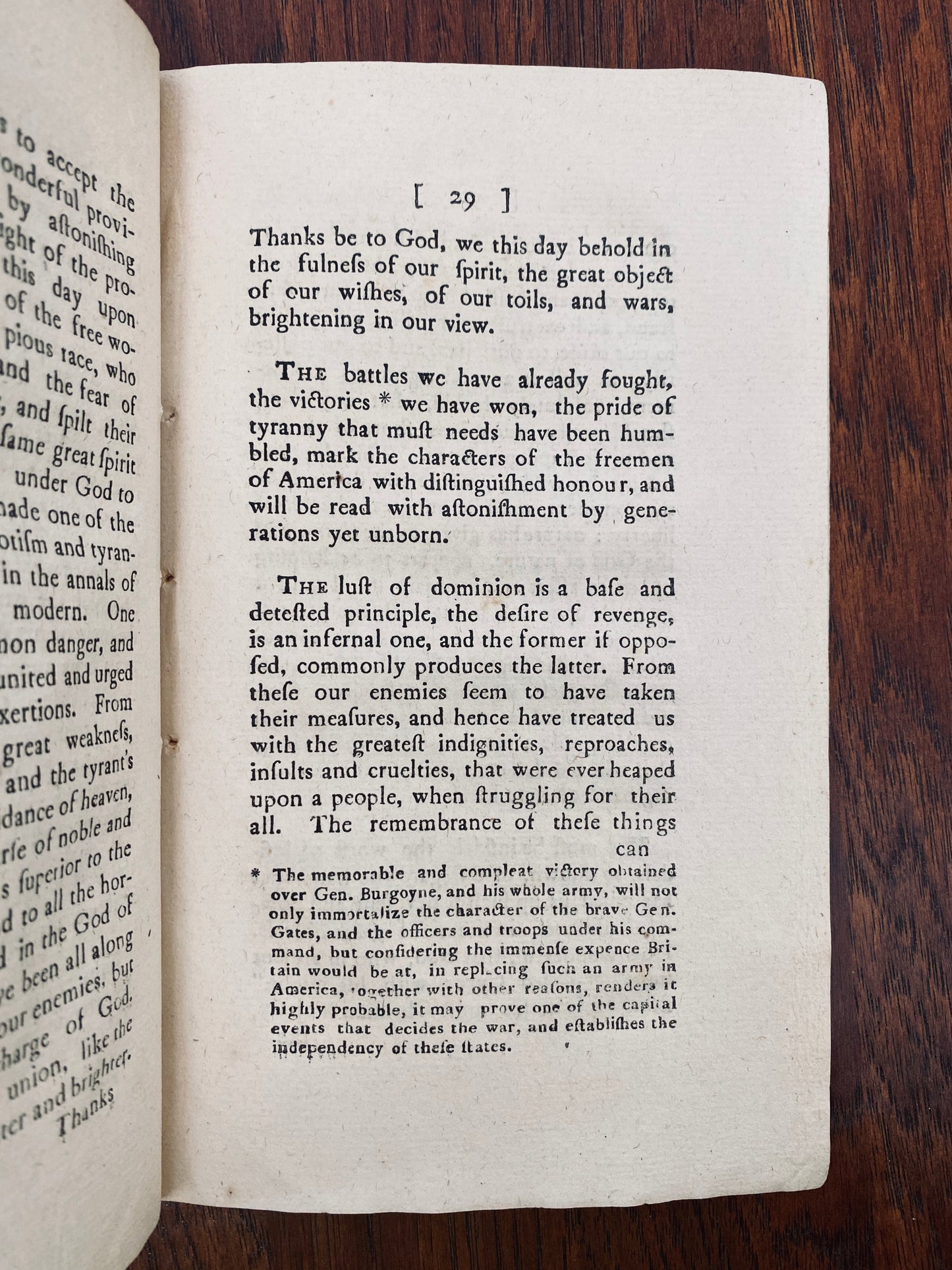Specs Fine Books
1778 PHILLIPS PAYSON. Important American Revolution Sermon on Civil Liberties & Religious Freedom
1778 PHILLIPS PAYSON. Important American Revolution Sermon on Civil Liberties & Religious Freedom
Couldn't load pickup availability
An exceptionally rare and important sermon on religious and Civil Liberty by an influential Revolutionary War divine. Perhaps the most important theological articulation of the American Revolution and Civil and Religious Liberty of the Revolutionary War era.
Samuel-Phillips Payson [1736-1801] was Pastor of the Congregational Church in Chelsea, just across the Mystic River from Boston. Previously a supporter of the Crown and against the radical revolutionaries, the continual incursions of the British Regulars into his town and their violent and immoral behavior led to a critical moment. In Lexington, a pair of regulars wanting to squat in a home, entered the home and stabbed, without provocation, an elderly deacon, another who was lame, and a child. All three died. The grotesqueness of the violence against the most vulnerable swayed Payson.
The result was that he preached an important sermon to his congregation in support of the Revolution, himself organized his congregation into a militia and his congregation, led by their pastor, were nobly engaged at the battles at both Lexington and Concord.
The present sermons is considered his most important contribution to the American Revolution. In it, he argues persuasively, from Galatians 4. 26 and 31, that the theological nature of God's people as not the children of the bond woman, but the free, demanded that to be subjected as a bond woman was to be dominated by Satan, and therefore below the dignity of any Christian people. . . deeply tying together religious liberties and civil liberties with the same textual string.
It is among the most radical and striking articulations of the populism of the Revolution:
"The voice of reason, and the voice of God, both teach us, that the great object, or end of governement, is, the public good. Nor is there less cerrtainty in determining, that a free and righteous government originates from the people and is under their direction and controul, and therefore a free popular model of government, of the republican kind, may be judged the most friendly to the rights and liberties of the people, and the most conducive to the public welfare."
"The form or constitution of government, that has been submitted to the people of this State, so amply secures the essentials of liberty, places and keeps power so intirely in the hands of the people, is so concise and explicit, and makes such an easy step from the old to the new form, that it may justly be considered as a high evidence of the abilities of its compilers, and if it should not be complied with, it is very probable, we never shall obtain a better."
"Where the spirit of libert is found in its genuine vigour, it produces its genuine effects, urging to the greatest vigilance and exertions, it will surmount great difficulties; that it is no easy matter to deceive or conquer a people determined to be free. The exertions and effects of the great spirit in our land, have already been such as may well astonish the world. And so long as it generally prevails, it will be quiet with no species of government, but what befriends and protects it. Its jealousy for its safty, may sometimes appear as if verging on faction; but it means well, and can never endanger a state unless its root and source is corrupted."
"The baneful effects of exorbitant wealth, the lust of power, and other civil passions, are so inimical to a free, righteous government, and find such an easy access to the human mind, that it is difficult, if possible, to keep up the spirit of good government, unless the spirit of liberty prevails in the State. Thsi spirit like other generous growths of nature, flourishes best in its native soil. It has been ingrafted at one time or another in various countries; in America, it shoots up and grows as in its natural soil. Recollecting our pious ancestors, the first settlers of the country, nor shall we look for ancestry beyond that period, and we may say in the most literal sense, we are children, not of the bond woman, but of the free. It may hence well be expected, that the exertions and effects of American liberty should be more vigorous and compleat. it has the most to fear from ignorance and avarice; for it is no uncommon thing for a poeple to loose sight of their liberty, in the eager pursuit of wealth. And it will always be as easy to rob an ignorant people of their liberty, as to pick the pockets of a blind man.
The slavery of a people is generally founded in ignorance, of some kind or another; and there are not wanting such facts as abundantly prove, the human mind may be so sunk and debased thro' ignorance and its natural effects, as even to adore its enslaver, and kiss its chains."
Payson, Phillips. A Sermon Preached before the Honourable Council, and the Honorable House of Representatives, of the State of Massachusetts-Bay, in New England, at Boston, May 27, 1778. Being the Anniversary for the Election of the Honourable Council. Boston. N. E. Printed by John gill. 1778. 42pp including wraps.
Provenace, having belonged to Colonial and Early American Silversmith, Benjamin Greenleaf.
Published by John Gill, Patriotic & Pro-Revolutionary publisher who issued the Declartion of Independence in his "New-England Chronicle" in 1776. It sells for over $250,000.00. This present publication perfectly consistent with Gill's efforts to support the American Revolution.
Original front wrap present, rear lacking. Final leaf of text supplied and bound in in superb quality facsimile [in process; please allow 3 weeks for delivery]. Sotheby's sold a copy in 1881 as part of the Stevens Historical Collection. Exceptionally rare on the market.
Share








